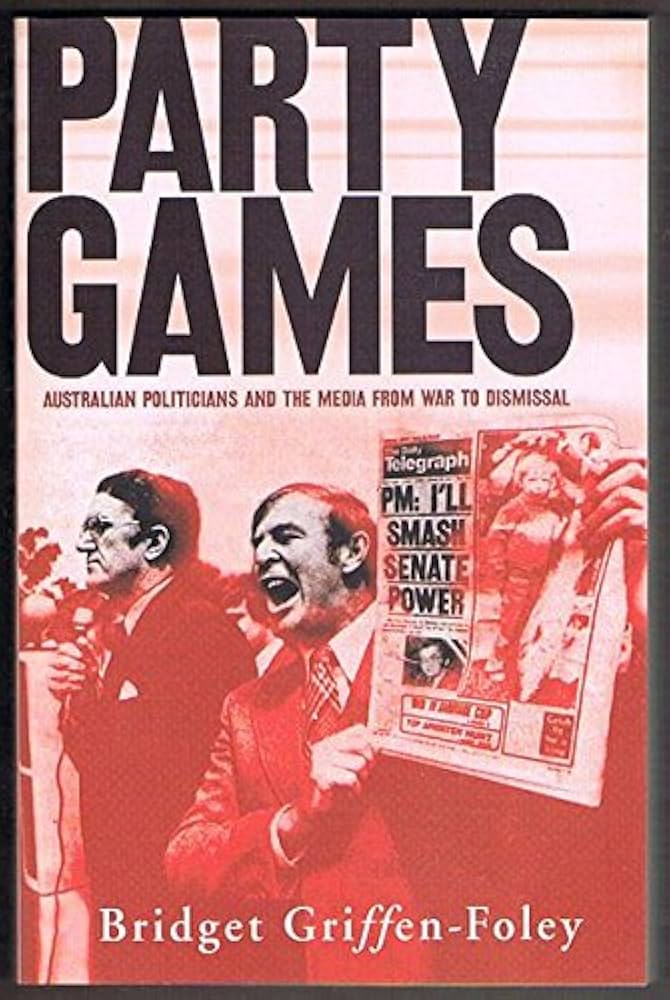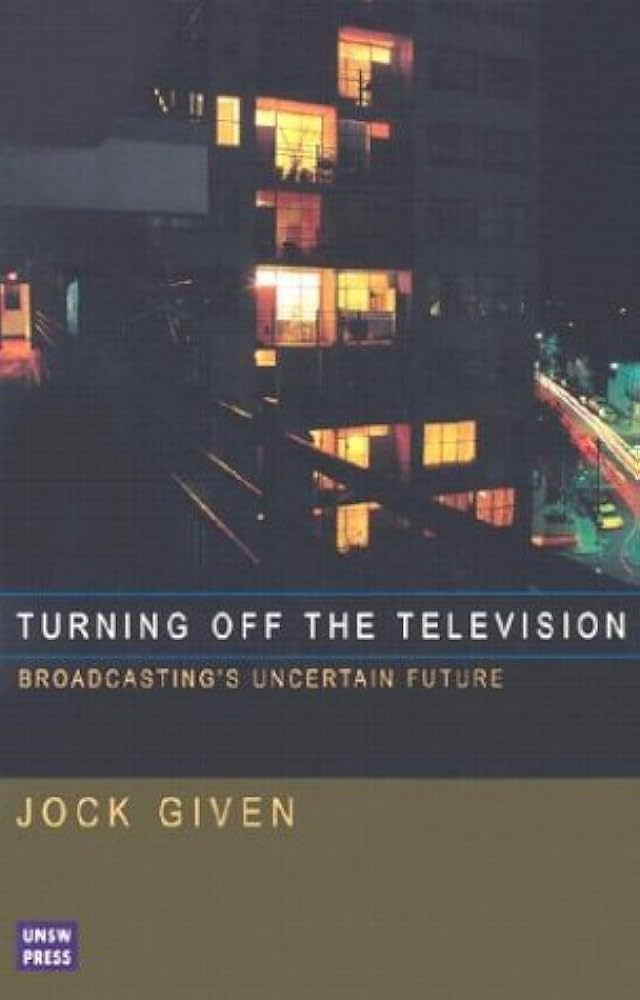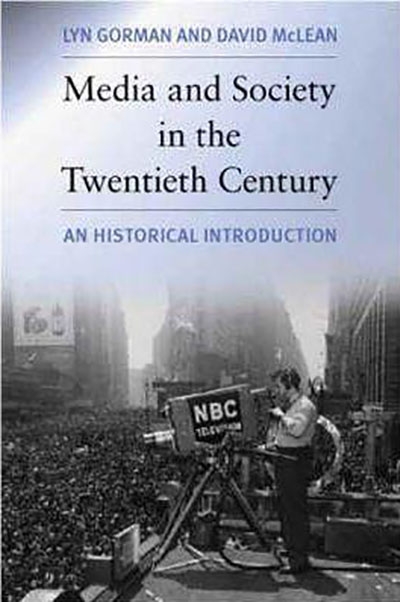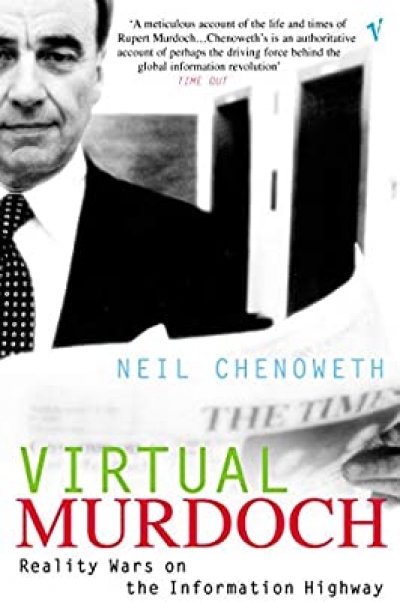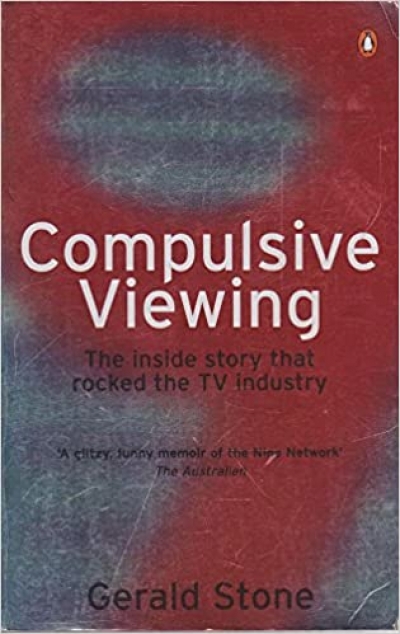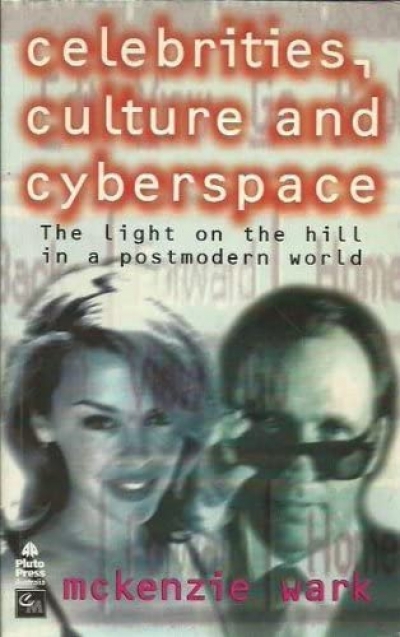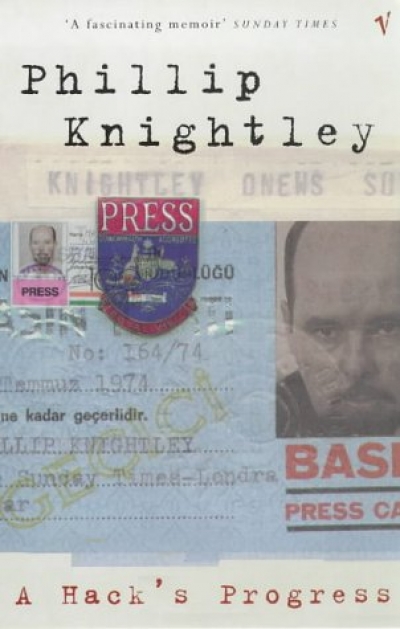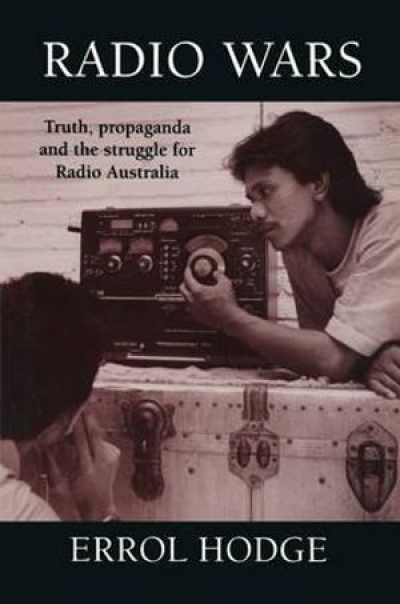Media
Psst. Do you have photographs of any obscure Sydney lord mayors in your family album? Do you have a view on whether Gretel Killeen has become too grumpy to host the next series of Big Brother, or whether a western Sydney security guard should be charged for killing a man who attacked her? If so, the Daily Telegraph wants to hear from you.
... (read more)Party Games: Australian politicians and the media from war to dismissal by Bridget Griffen-Foley
In the aftermath of the Iraq War, any book on the history of public relations and politics seems almost quaint. That’s not a criticism, because the events and ideas Bridget Griffen-Foley analyses in Party Games: Australian politicians and the media from war to dismissal highlight just how quickly and utterly PR has insinuated itself into the life of politics. Still, it is hard to resist a cynical smile as you read of the then Liberal Party president, R.G. Casey, noting in 1947 that ‘he had learned from an American friend of a new profession called “Public Relations”’. Showing the sort of political prescience that underpinned Robert Menzies’ success, Casey became convinced of the ‘need to create a “favourable atmosphere” to advance one’s causes or interests’. Fast forward to the likes of Alastair Campbell, the head of strategic communications for the Blair government, or even our own Peter Reith, and the naïveté of the immediate post-World War II period seems positively disarming.
... (read more)Turning off the Television by Jock Given & Media mania by Hugh Mackay
At a recent Australian Broadcasting Authority conference, federal communications minister Senator Richard Alston conceded that the early adoption of digital television in Australia had been ‘modest’. More impartial observers of the transition to digital broadcasting in Australia have been less restrained. ‘A digital dead-end’ and ‘dismal failure’ are representative of recent media commentary on the subject.
... (read more)Media and Society in the Twentieth Century: A historical introduction by Lyn Gorman and David McLean
Media history is an oddly underdeveloped area. Historians who work in media history are frequently reminded that such work exists at the margins of their discipline, and media does not feature at all in many accounts of political and social history. To take one example, Alastair Davidson’s otherwise impressive From Subject to Citizen: Australian citizenship in the twentieth century (1997) contains one reference to Rupert Murdoch’s citizenship, but none to the role of media in forming the identities of Australian citizens in the twentieth century.
... (read more)Virtual Murdoch by Neil Chenoweth & Working for Rupert by Hugh Lunn
In the last week of June, after a period in the doldrums, the News Corporation share price suddenly took wing again. Buyers piled in. A lazy few hundred million dollars were added to the company’s value. The basis of the revaluation? Apparently, Rupert Murdoch himself had descended from Olympus to participate in a presentation to sharebrokers in Sydney. Enraptured at this visitation, analysts had upped their profit projections for News.
... (read more)There are watchdogs and there are lapdogs. Watchdogs are alert. At the slightest movement, they growl. When they bite, it hurts. Lapdogs are alert – to their master’s moods.
... (read more)If Gerald Stone had gone to a publisher with a proposal for a book about Channel Seven or Channel Ten, it is doubtful whether it would ever have seen the light of day. But Stone – who would have endured more than a few pitches in his time as a television executive – had the sense to propose a book about his former employer, Channel Nine, and Compulsive Viewing is the result.
... (read more)Celebrities, Culture and Cyberspace: The light on the hill in a postmodern world by McKenzie Wark
McKenzie Wark had the good fortune to ensconce himself in media studies just when those who once would have busied themselves with Stendhal or John Tranter began to envy his terrain. And his various journalistic gigs, notably his column for The Australian Higher Education Supplement, give him the advantage over other academics of being able to cobble together a book every year or two. Or, as he puts it, ‘Celebrities, Culture and Cyberspace is a book that was written in its own peculiar way, as a series of experiments with fitting events and ideas together, conducted in public, through a wide variety of print and electronic media.’
... (read more)Phillip Knightley prefaces his book with these definitions, so which does he want to identify himself with? Surely not the first. A mere scribbler he may have been early in his career, especially when he was recycling other journalists’ stories (hacking them about, perhaps?) at the London officer of the Australian Daily Mirror. But no-one, now, could call him a poor writer.
... (read more)Radio Wars: Truth, propaganda and the struggle for radio Australia by Errol Hodge
The arguments about control of the media seldom mention radio. Yet, because it is cheap to operate, portable, and user-friendly, radio is powerful and governments are always mindful of its potential.
... (read more)

